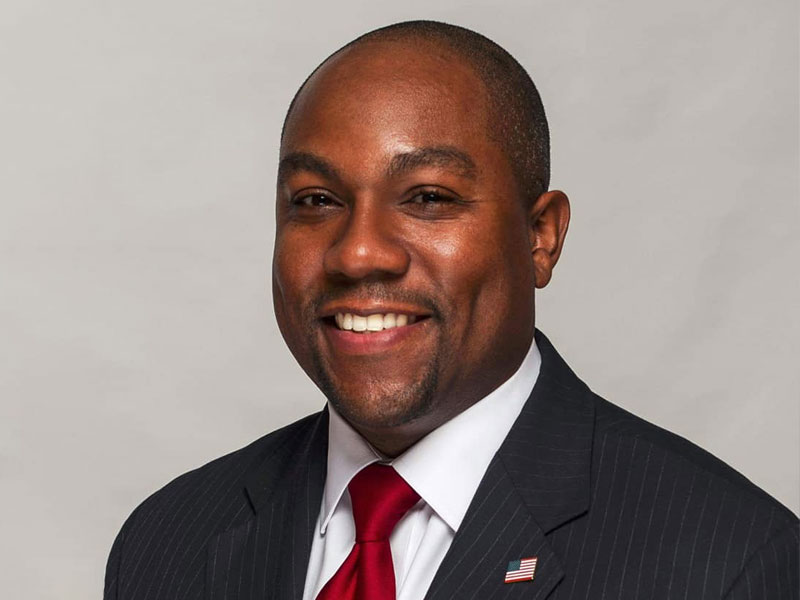Opel Jones

Bio: Opel is a loving husband, dedicated father, and servant to the community. He mentors, tutors, volunteers in his free time through his fraternity, and coaches youth football and youth baseball. Throughout the years, Opel has worked as an engineer, mathematics and statistics lecturer, development officer, and computer scientist, at several institutions and the federal government. He also served as Director of the Leadership Institute for several years at Hampton University, teaching leadership studies and developing leaders in addition to teaching mathematics and honors seminars. Currently, he is a mathematician and analyst at The John’s Hopkins University Applied Physics Laboratory. Additionally, he is currently serving on the County Council in Howard County, Maryland. He was first elected to office in 2018, and just re-elected in 2022.
Opel earned the B.S. in mathematics from Hampton University, the M.S. in mathematics from Howard University, and the Ph.D. in mathematics also from Howard University. He is a Life Member of Alpha Phi Alpha Fraternity, Inc., initiated at Hampton University, and past president of the local Howard County chapter. His professional associations include the American Mathematical Society, the Mathematical Association of America, and the National Association of Mathematicians. Opel loves music, football and baseball, reading, Sudoku puzzles, and is a lifelong practitioner of martial arts. He and his wife, Shaundra, are extremely proud parents of three: Opel II, Ivan, and Whitley!
Topics Include:
Mathematical Modeling in a STEM Realm
In my work at The Johns Hopkins University Applied Physics Laboratory, it is exciting and refreshing to use my mathematical and statistical background for real-world problems and situations. Whether using mathematical modeling to predict flight path, utilizing maximum likelihood estimation to estimate reliability, or implementing principles of systems engineering and computer science for systems analysis and test and evaluation, mathematics is at the core of planning in times of potential defense. In this talk, we will discuss several methods in which we evaluate system error, use data derived modeling to predict flight path, and solve real-world problems which our government may use.
To teach or not to teach?
Throughout my professional career, I have enjoyed my vocation as a systems engineer, lecturer, higher education administrator, computer scientist, clinical assistant professor, and now a mathematician and analyst. My background is in pure mathematics, specializing in enumerative combinatorics, something I may not use in my day-to-day work, yet the analytical skills and dynamic thinking that arises from the field is crucial for producing imperative results. In this talk for undergraduate and graduate students, we will discuss various paths to a fruitful career if one holds (or is pursuing) mathematical and/or statistical degrees at the terminal level.
Pattern Avoidance in Restricted Permutations
In 1974 Dumont found two types of permutations are counted by the same sequence. The first type is a permutation in which each even entry is followed by a smaller entry, and each odd entry is followed by a larger entry, or ends the permutation. The second type is a permutation wherein if an entry is a deficiency, it must be even, and if an entry is an exceedance or a fixed point, it must be odd. These are now known as Dumont permutations of the first and second kinds. There are two other types of permutations which are also counted by the same sequence, known as Dumont permutations of the third and fourth kinds. In this talk we will discuss several enumerations of restricted Dumont permutations, that is Dumont permutations avoiding certain patterns. We will also briefly discuss their proofs which involve methods using induction, block decomposition, Dyck paths, and generating functions. We will conclude with a conjecture that the patterns 2143 and 3421 are indeed Wilf-equivalent on Dumont permutations of the first kind.